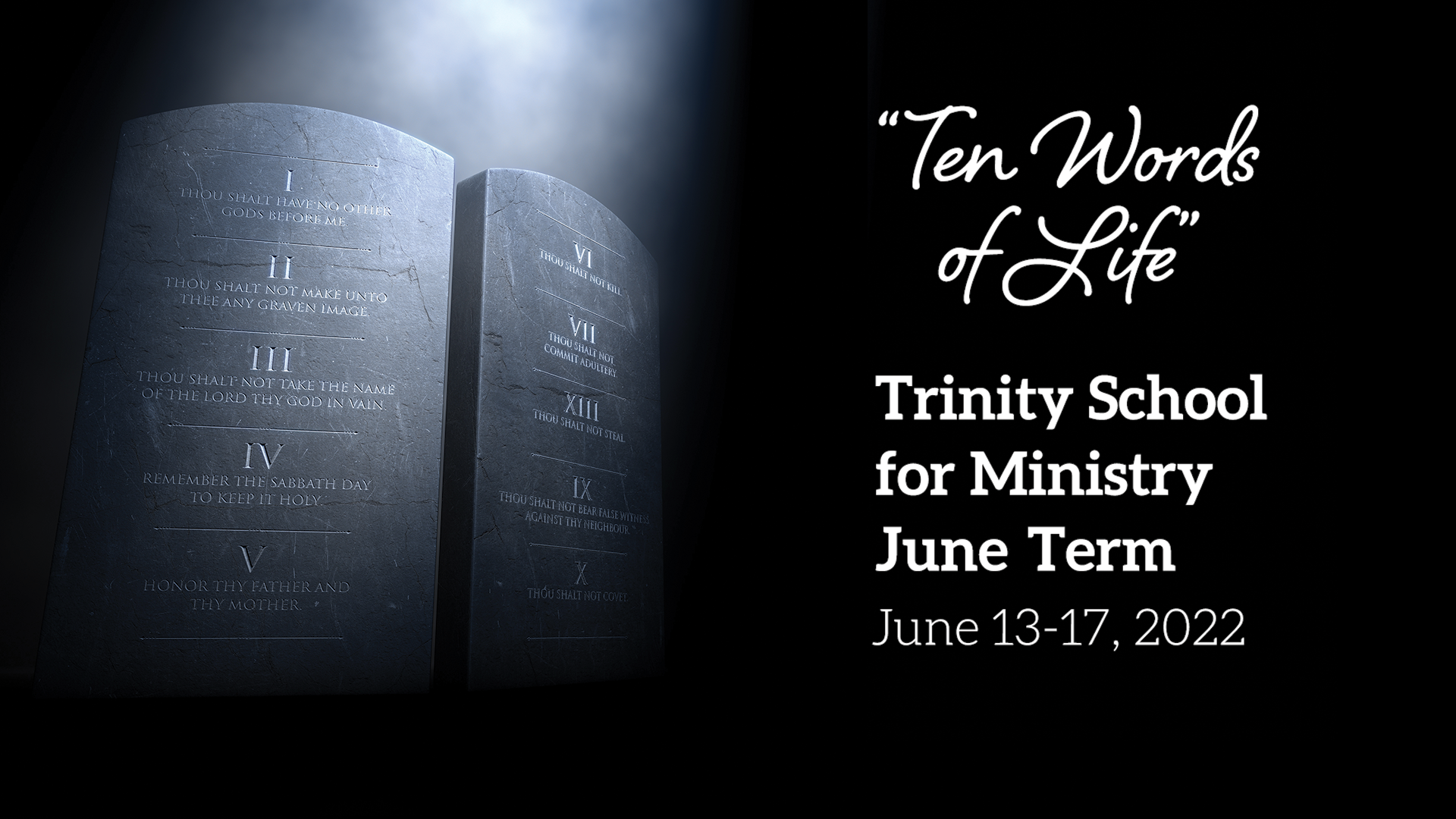Trinity School for Ministry and AFL are hosting a June Term class from June 13-17, 2022. The class will be taught by The Rev. Georgette Forney and The Rev. W. Ross Blackburn, Ph.D. Registration is open from March 30 – May 6, 2022. The class can be taken for credit for $1,680 or audit for $350. To register, contact the registar at swilliard@tsm.edu. We interviewed Rev. Blackburn about the class recently.
Can you tell us about the class?
RB: This class is about two things – the Ten Commandments and life. “Ten Words of Life” argues that each of the Ten Commandments, without exception, pertains to matters of life, particularly abortion. If that seems far-fetched, it is because we haven’t sufficiently understood the depth of the Ten Commandments, nor have we grasped the breadth of concerns at stake in matters of life. If true, however, then life issues are not “issues,” but matters central to the Gospel and to the Church’s witness. This class will challenge our complacency and expose ways in which we, even those of us who are pro-life, unwittingly participate in what Pope John Paul II has called a culture of death. Abortion and euthanasia are hidden catastrophes, and millions burdened by these sins need to know the freedom and forgiveness offered in Christ Jesus.
What do you want students to learn by taking this class?
RB: Perhaps counter intuitively, looking at the Ten Commandments through the lens of life issues helps us understand the Ten Commandments better on their own terms—as commands given to Israel. Yet we’ll also see how they address many of the intransigent cultural matters today. For example, the Ten Commandments beckon us, as they did Israel, to confront matters such as the nature of marriage and family, the political character of the Church’s witness, the nature of justice and injustice, the character of language, and—most importantly—worship. In the end, we want students to leave the class knowing God better, being more convinced of God’s goodness, and being better able to witness God’s grace to a heavy-laden and abortion-weary world. The Ten Commandments give us real guidance on how to address, with firmness and grace, a human catastrophe that has left millions of victims—children, parents, and the rest of us—in its wake.
Aren’t abortion and euthanasia cultural issues? Why would a seminary teach about them?
RB: Jesus’ call to make disciples of all nations could be well understood as making disciples within all cultures, for the Gospel, always and necessarily, addresses culture. To be blunt, abortion and euthanasia aren’t cultural issues any more than eugenics was a cultural issue in Nazi Germany, communism in the USSR, or the One-Child policy in China. Human suffering can never be reduced to a cultural issue.
Why do you believe the Church should address life issues?
RB: We have no choice but to address life issues. It is a matter of faithfulness. Isaiah’s call remains ever true for the Church— “seek justice, correct oppression, bring justice to the fatherless, plead the widow’s cause” (Isaiah 1:17). Not only is defending the vulnerable required by God, but it is who we are, for those who love God love the Image of God. It is also an opportunity. The brightness of the Church’s witness to Christ depends upon her extending herself for the vulnerable. To do justice, to love mercy, and to walk humbly with God—this is a Church that can speak to the world.
Do you have to be ordained to take the class?
RB: No. We hope many bishops, priests, and deacons take this course, but the strength of the Church is found in the laity, the people of God. Our hope is that those who take this class will be able to take what they have learned back to their rectors and their churches and use it.
What are the requirements if you want to take it for credit?
RB: If it is the first credit class you have taken at Trinity, you do not have to be formally enrolled. The course requirements are laid out in the syllabus, which can be found at: https://www.tsm.edu/interterms/. In short, we will read through four books, a handful of articles, and write four papers. StM or DMin students have more extensive requirements.
Can you take the class without having to do papers and a lot of extra reading?
RB: Yes. You can audit the class in full, or you can take a two-day option.




